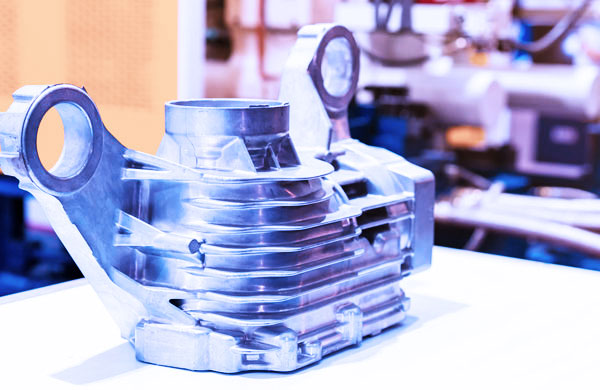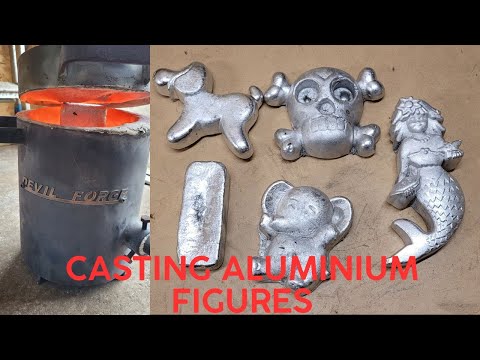The Single Strategy To Use For Stahl Specialty Company
The Single Strategy To Use For Stahl Specialty Company
Blog Article
Getting My Stahl Specialty Company To Work
Table of ContentsHow Stahl Specialty Company can Save You Time, Stress, and Money.Excitement About Stahl Specialty CompanyNot known Facts About Stahl Specialty CompanyNot known Facts About Stahl Specialty CompanySome Known Details About Stahl Specialty Company The smart Trick of Stahl Specialty Company That Nobody is Talking About

If you're making a steel item, you've likely thought about making use of light weight aluminum as the base material. It has a high strength-to-weight proportion, excellent deterioration resistance, great formability, and visual appeal. These variables have brought about its boosted popularity in the last few years. Pure light weight aluminum has restricted applications, so it is often combined with various other aspects, such as silicon, magnesium, and manganese to form alloys.
Different components and amounts generate a vast variety of preferable physical and chemical homes. And the Light weight aluminum Association (AA), based in North America, has actually created requirements that control aluminum alloys' composition, residential properties, and nomenclature. There are two kinds of light weight aluminum alloys functioned and cast. Factory employees develop these alloy enters different means, which dramatically influences their qualities.
7 Easy Facts About Stahl Specialty Company Shown
Cast light weight aluminum alloys are made by thawing pure light weight aluminum and combining it with other metals while in liquid form. After that the mix is put into a sand, pass away, or financial investment mold and mildew. After solidification, the steel is removed from its mold and mildew. At this stage, it remains in either its last form or as a billet or ingot for further processing.

160.0 stands for a cast with a minimum of 99.60% aluminum. The fourth figure, which follows the decimal point, defines if the alloy is a casting (xxx. 0) or an ingot (xxx. 1). Wrought light weight aluminum alloys also start by integrating liquified aluminum with various other metals. In comparison to cast alloys, however, they are created into their last shape with processes such as extrusion, rolling, and flexing after the steel has actually solidified into billets or ingots.
There are lots of minor distinctions between wrought and cast light weight aluminum alloys, such as that actors alloys can contain more considerable amounts of other steels than functioned alloys. But the most noteworthy difference in between these alloys is the manufacture procedure whereby they will most likely to provide the end product. Apart from some surface treatments, cast alloys will leave their mold and mildew in nearly the specific strong form desired, whereas wrought alloys will undergo numerous modifications while in their solid state.
If you assume that a functioned alloy might be the very best for your job, have a look at some of our short articles that describe more regarding particular wrought alloys, such as Alloy 6061 and Alloy 6063. On the other hand, if you think an actors alloy would certainly be much better for you, you can discover more concerning some actors alloys in our Alloy 380 and Alloy 383 short articles (coming quickly).
The Ultimate Guide To Stahl Specialty Company
When picking a light weight aluminum shop for your manufacturing requirements, it's crucial to study numerous variables. Among one of the most essential elements to consider is the experience and proficiency of the foundry. aluminum metal casting. Choosing a shop that has the ideal expertise of the aluminum casting process, and the portfolio to reveal for it, helps to have an effective outcome for your task
Having the experience and industry understanding to engineer your spreadings for optimum manufacturing and quality end results will certainly streamline the project. Producing aluminum spreading calls for a complex set of processes to achieve the ideal results. When choosing a brand-new light weight aluminum factory to partner with, guarantee they have extensive sector experience and are experienced about all facets of the aluminum spreading process: layout, manufacturing, material analysis, and product testing.
The factory must additionally have a tried and tested record of delivering outstanding products that meet or exceed consumer assumptions. Quality control ought to likewise go to the top of your checklist when choosing an aluminum foundry. By dealing with a certified shop who adheres to the criteria for high quality control, you can secure the honesty of your item and guarantee it meets your requirements.
By choosing a firm that supplies services that meet or surpass your item requirements, you can be sure that your project will be completed with the utmost precision and efficiency. Specific light weight aluminum foundries focus on certain kinds of producing procedures or casting methods. Different parts call for different production strategies to cast light weight aluminum, such as sand casting or pass away casting.
Some Ideas on Stahl Specialty Company You Need To Know
Die spreading is the name provided to the process of creating complex metal elements with use of molds of the component, additionally known as passes away. The procedure uses non-ferrous steels which do not include iron, such as light weight aluminum, zinc and magnesium, as a result of the preferable buildings of the steels such as low weight, higher conductivity, non-magnetic conductivity and resistance to rust.
Die casting production is quickly, making high production degrees of parts very easy. It produces more parts than any type of other procedure, with a high degree of accuracy and repeatability. For more information concerning die spreading and pass away casting materials made use of while doing so, continued reading. There are three sub-processes that see fall under the classification of die casting: gravity die spreading (or permanent mold casting), low-pressure die casting and high-pressure die casting.
After the purity of the alloy is checked, passes away are created. To prepare the passes away for casting, it is essential that the dies are tidy, so that no deposit from previous productions remain.
The Best Guide To Stahl Specialty Company
The pure metal, additionally known as ingot, is contributed to the heating system and maintained the molten temperature level of the steel, which is after that moved to the shot chamber and infused into the die. The pressure is then kept as the steel strengthens. Once the steel solidifies, the cooling process begins.
(https://www.sooperarticles.com/authors/796261/frances-howard.html)
The thicker the wall of the component, the longer the cooling time as a result of the amount of indoor steel that likewise needs to cool down. After the element is totally cooled down, the die cuts in half open and an ejection mechanism presses the element out. Following the ejection, the die is shut for the next shot cycle.
The flash is the additional material that is cast during the procedure. Deburring eliminates the smaller sized pieces, called burrs, after the cutting process.
Stahl Specialty Company Fundamentals Explained

Zinc is one of the most previously owned alloys for die casting due to its reduced price of raw products. Its deterioration resistance likewise allows the components to be lengthy enduring, and it is one of the a lot more castable alloys due to its lower melting point.
As mentioned, this alloy is one of one of the most typically made use of, yet manufactures will, at times, select light weight aluminum over zinc because of light weight aluminum's production benefits. Aluminum is extremely cost-effective and one of the more functional alloys. Light weight aluminum is used for a variety of different products and sectors anything from window frameworks to aerospace materials.
Report this page